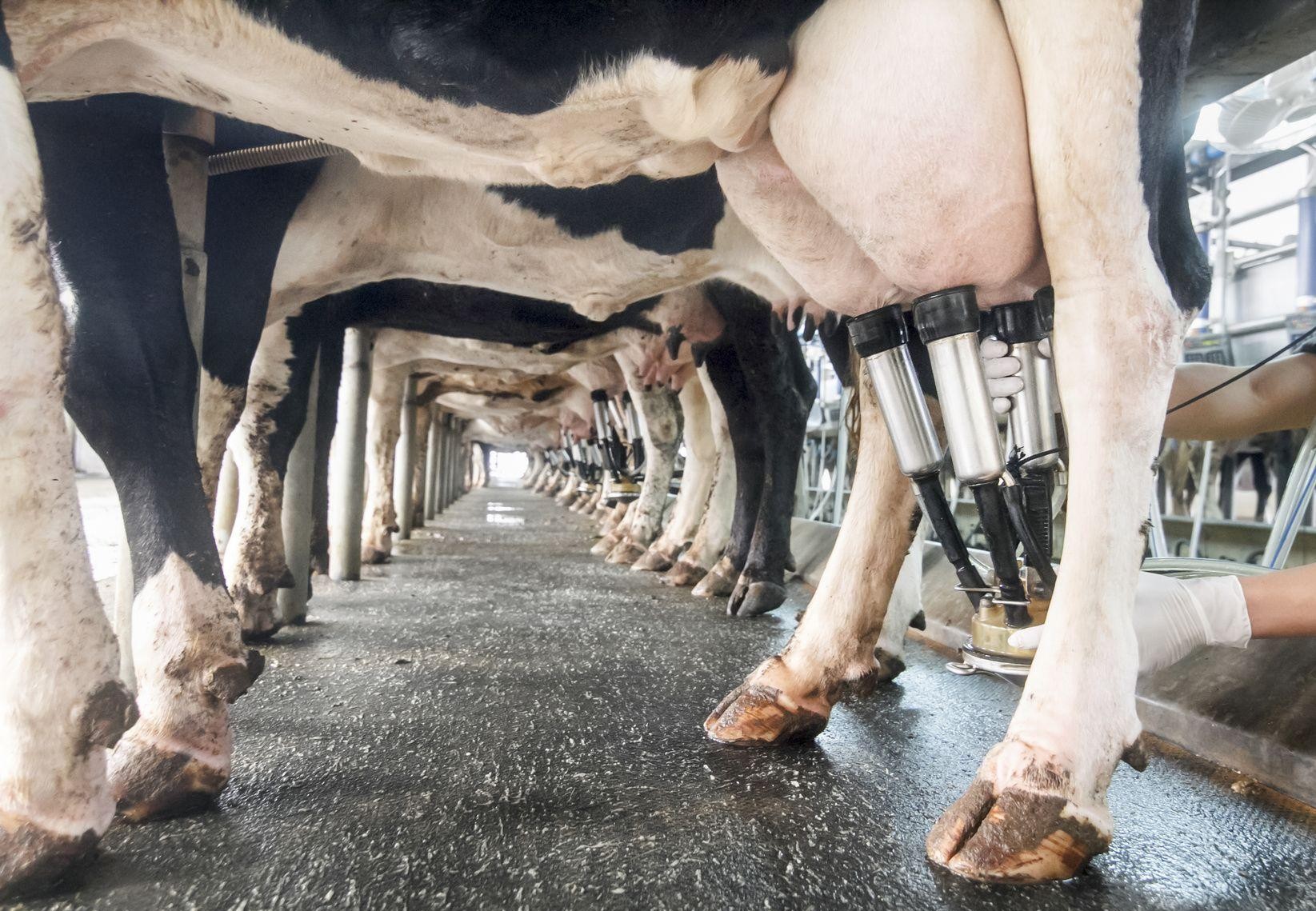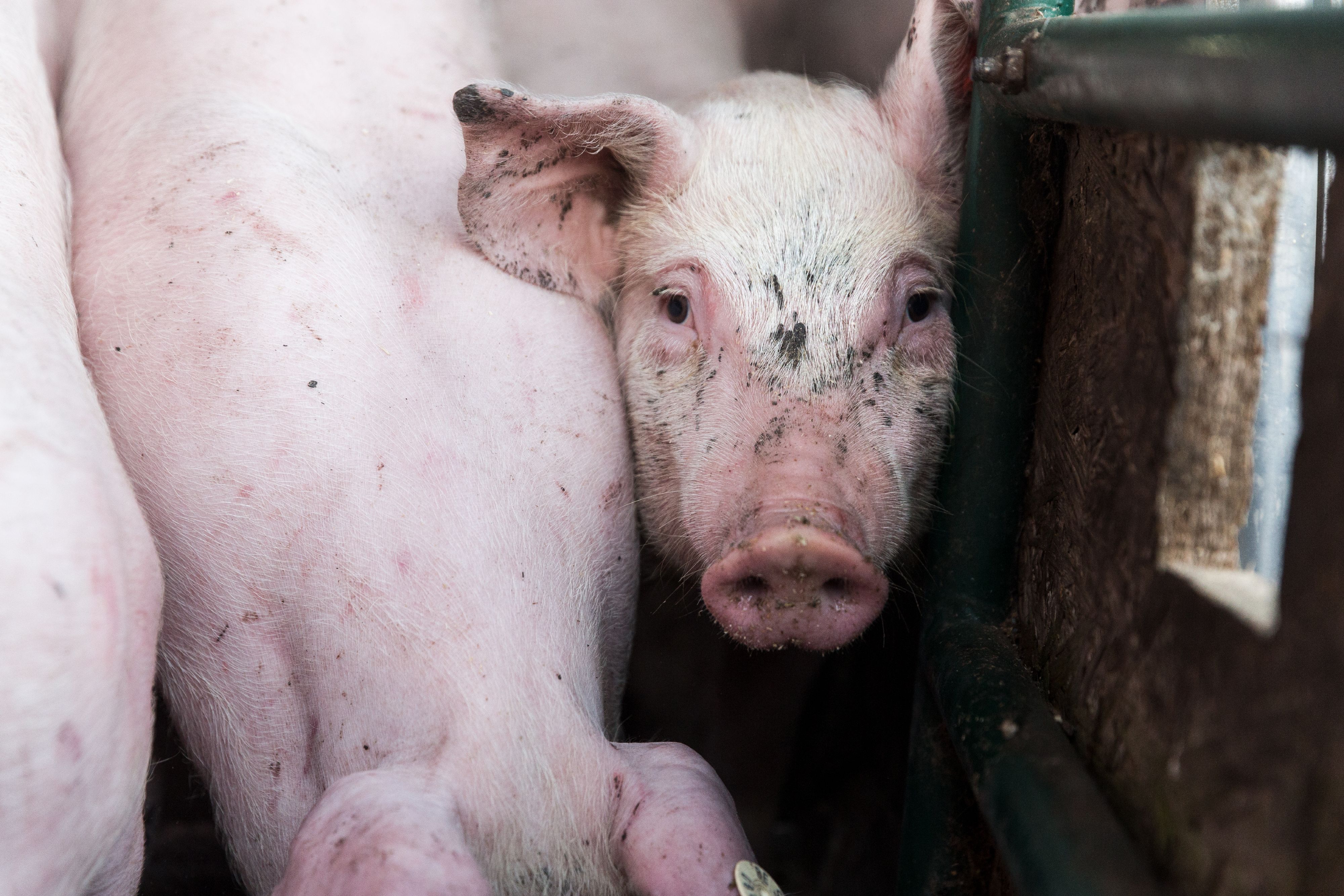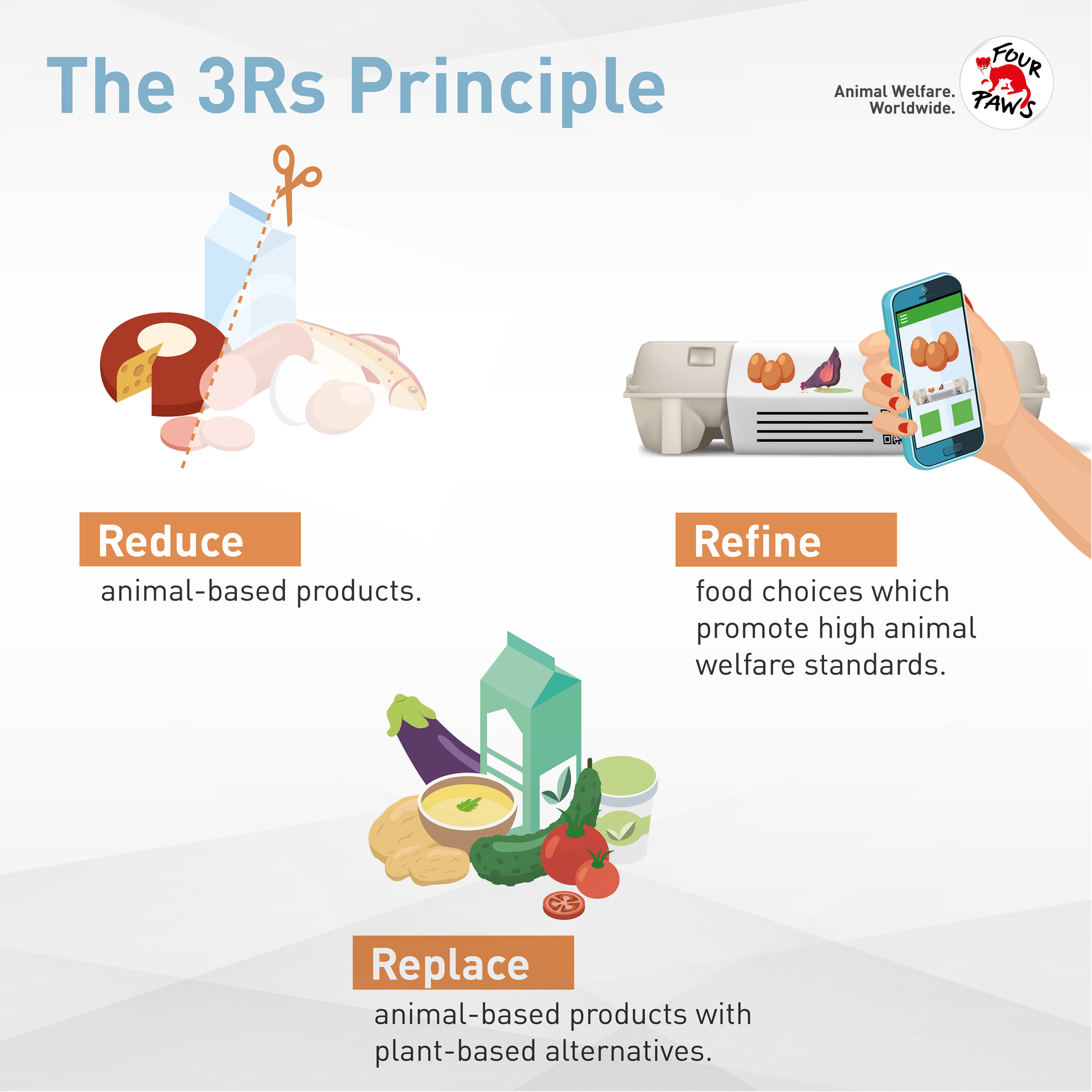
Red Tractor commits to improved animal standards
Long awaited animal welfare improvements prioritise animal health, but is it enough?
This November, we will see Red Tractor implement a number of new and improved standards that will promote animal welfare, protect workers’ rights and enhance environmental protection. We welcome these stricter standards, however, are they enough to truly reflect the mental and physical needs of farmed animals?
Red Tractor is the UK’s largest food assurance scheme, and you will often find their logo on meat, dairy and eggs in your local supermarket. FOUR PAWS believes Red Tractor represents the absolute minimum requirements farmers must meet to ensure farmed animals are kept in suitable conditions, and we hope that these new changes signify the start of a new era in how UK farmed animals are kept and cared for.

What are the new standards?
Over 3,000 farming stakeholders shared their input and fed into the consultation that has guided Red Tractor in making these updated requirements. A compromise between consumer demand, supply chain and farmer capabilities has had to be made to ensure that this first step towards higher animal welfare standards is attainable for all parties.
But what are the new and improved changes? See below to ensure the next time you’re in the supermarket you can make an informed choice on the meat, eggs, and dairy you buy.
Overall Changes
- Currently, the farms only require a written health and safety policy if they have more than five workers. Due to the high fatality figures in the farming industry, Red Tractor believes it is essential for all farms to have health and safety policies in place.
- To ensure efficient health planning for their animals, all beef, lamb and dairy farmers will require health plans to be signed, dated and reviewed annually by a nominated vet. This means a vet will need to visit the farm at least once a year come November 2021.
- Currently just a recommendation, by November 2021 every beef, lamb and pig farm will require at least one worker to have undertaken medicine training to help raise awareness of antimicrobial resistance and drive medicine use best practice.
Beef & Lamb
- Following recommendations from the Farm Animal Welfare Council and European Food Safety Authority, tethering of sheep and cows will now be banned. Tethering is where an animal is fastened by a rope or chain confining it to a specific area, a practice that can cause distress to the animal when isolated its herd for long periods of time.
- Bovine Viral Diarrhoea is a disease that causes reproductive failure in cattle, such as premature births or birth defects. The disease can decimate herds and cause major financial loss to the farmer if left unchecked, so from October 2022 it will compulsory for all Red Tractor farms to put active measures in place to eradicate BVD. In the run up to then, farmers will need to start implementing health plans and update their testing routines where necessary to control the disease.
Dairy
- As with beef cows, tethering of dairy cows will also be banned.
- Red Tractor will implement a new written breeding and management policy to help eliminate the routine euthanasia of calves by 2023.
Pigs
- Red Tractor farms must minimise the risk of tail biting and avoid the need for tail docking through annual risk assessments and action plans for farms rearing docked pigs. Anyone carrying out tail docking needs to have evidence to support the continued need, including a detailed quarterly veterinary review. Currently, piglets aged three to four days old can have their tails cut off with no anaesthetic to reduce the risk of tail biting. However, this practice can cause severe pain, infection and intense lasting discomfort. Tail docking has been illegal in the EU since 1994, so we hope this new requirement will be the first step towards a fully implemented UK ban.
- In line with Defra’s Code of Practice, farms will be required to provide specific combinations of enrichment materials and objects to ensure the important behavioural needs of pigs are met. This enrichment must provide pigs with the opportunity to investigate, manipulate and forage in their surroundings, and often comes in the form of straw or hay.
- Euthanasia training carried out by a vet or through the Humane Slaughter Association will be mandatory for workers going forward. Where a mechanical device is used for piglet euthanasia, Red Tractor have followed Humane Slaughter Association’s guidance.
- Any worker involved in the care of pigs will now have to complete mandatory online pig welfare training in key areas including best practice around moving and handling pigs to ensure all pigs are always treated compassionately.
- To help monitor and prevent the outbreak of disease in neighbouring farms, farmers will have to sign up to the Significant Diseases Charter to report disease outbreaks.
Poultry
- In line with current research, Red Tractor has updated its list of acceptable chicken breeds to ensure only slow-growing breeds are used in their free range and enhanced welfare standards. Eliminating chickens that grow too fast is vital, as these chickens can get so heavy that they struggle to breath, walk, and suffer from heart defects.
- Red Tractor farms must allow at least five days to clean and disinfect housing before a new flock can move in to ensure conditions are sanitary and limit the risk of spreading disease. In addition, enrichment will need to be added to chicken sheds by day three of the new flock moving in.
- By October 2023, all farms must meet the minimum standard of windows equating to 3% of the floor area for broiler, poussin, and free-range chickens. Whilst this is still a fraction of the natural light a chicken should be allowed in its lifetime, it is a small positive step to improved welfare for these birds.
- Birds can become ‘heat-stressed’ if they have difficulty balancing the amount of heat they lose and the amount of heat they produce. Heat stress can be deadly to birds, as a body temperature that rises more than 4°C above their natural temperature will kill them. To help tackle heat stress, Red Tractor has made it mandatory for any poultry farm to have a demonstratable heat stress policy.
- Farms that produce eggs will need to meet a number of new criteria that will improve egg traceability, transport for eggs and chicks and sanitising of eggs prior to setting to help eliminate the spread of disease.
We commend Red Tractor for taking the initiative and making positive steps towards improved welfare for farmed animals. Sadly, the fact of the matter is that these animals are still caged and farmed in intensive systems that contribute 14.5% of the world’s global carbon emissions and create the perfect environment for zoonoses to fester and spread. To truly promote animal health, human health and the health of our planet, we must incorporate the 3 R’s principle of Reduce, Refine and Replace. These new steps by Red Tractor make refining our food choices a little easier, but it is a far cry from the sustainable, outdoor-reared farming we need to see.


